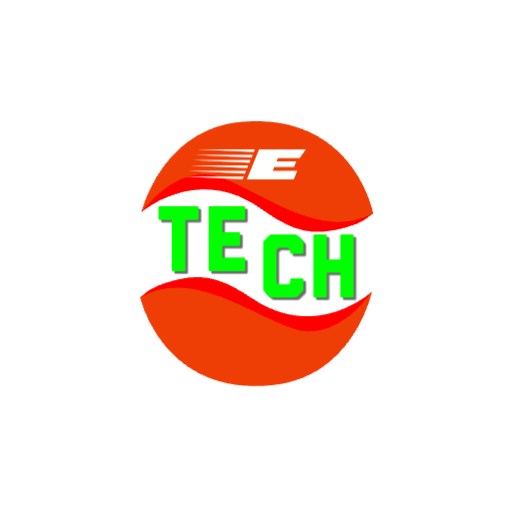Comprehensive Snap Finance Guide
Certainly! Here’s a comprehensive guide to Snap Finance that covers various aspects of the service:
-
What is Snap Finance?
Snap Finance is a financial technology company that offers lease-to-own financing options for consumers. It provides an alternative to traditional credit-based financing, allowing customers with low credit scores or no credit history to make purchases through flexible payment plans.
-
How does Snap Finance work?
Here’s a step-by-step overview of how Snap Finance works:
- Application Process: Customers can apply for Snap Finance either online or in-store. The application process typically involves providing personal information, employment details, and bank account information.
- Credit Decision: Snap Finance assesses the applicant’s creditworthiness based on various factors, including income, employment stability, and banking history. The approval decision is usually made within minutes.
- Spending Limit: Approved applicants receive a spending limit representing the maximum amount they can finance through Snap Finance.
- Shopping: Customers can choose from a network of participating retailers where Snap Finance is accepted. They can make purchases up to their approved spending limit.
- Down Payment: At the time of purchase, customers may be required to pay a down payment, which is typically a small percentage of the total purchase price.
- Repayment Terms: Snap Finance offers flexible repayment terms, typically 12 to 24 months. Customers make fixed weekly, bi-weekly, or monthly payments until the financed amount is fully repaid.
- Early Repayment: Snap Finance allows early repayment without any prepayment penalties. Customers can pay off the remaining balance before the end of the term and save on interest charges.
- Eligibility Requirements:
Snap Finance has its criteria for eligibility. While specific requirements may vary, here are some common factors:
- Minimum Age: Applicants must be at least 18 years old.
- Income: Applicants must have a stable source of income, which can include employment, self-employment, or other regular income streams.
- Bank Account: Applicants need to have an active checking account to facilitate automatic payments.
- Credit History: Snap Finance considers individuals with low credit scores or no credit history. They aim to provide financing options for customers who may have been turned down by traditional lenders.
- Participating Retailers:
Snap Finance has a network of participating retailers across various industries, including furniture, electronics, appliances, tires, and more. The availability of Snap Finance may vary depending on the retailer, so customers should check with the specific store to ensure they accept Snap Finance.
-
Benefits of Snap Finance:
- Accessibility: Snap Finance provides financing options for individuals with low credit scores or no credit history.
- Quick Approval: The application process is fast, and customers receive a credit decision within minutes.
- Flexible Payments: Snap Finance offers flexible repayment terms, allowing customers to choose a payment frequency that suits their budget.
- Early Repayment Option: Customers can pay off their balance early without any prepayment penalties.
- Building Credit: Snap Finance reports payment history to credit bureaus, so timely payments can help establish or improve credit.
- Considerations and Limitations:
- Interest Rates: Snap Finance charges interest on the financed amount. It’s essential to review the terms and conditions to understand the applicable interest rates.
- Affordability: While Snap Finance provides access to financing, customers should carefully evaluate their budget and ensure they can comfortably afford the payments.
- Participating Retailers: Snap Finance is only available at participating retailers, so customers should verify if their desired store accepts Snap Finance.
It’s worth noting that the specifics of Snap Finance may evolve, so it’s advisable to visit the official Snap Finance website or contact their customer support
for the most up-to-date information and details regarding their services.
Who accepts Snap Finance?

A wide range of retailers across different industries accepts Snap Finance. While the availability of Snap Finance may vary depending on the specific retailer, here are some common industries where you can find participating stores:
- Furniture and Home Goods: Many furniture stores, including both local and national chains, accept Snap Finance. This includes retailers specializing in sofas, beds, dining sets, mattresses, home decor, and more.
- Electronics and Appliances: Snap Finance is often accepted at electronics and appliance stores. This includes retailers offering televisions, laptops, smartphones, kitchen appliances, refrigerators, washing machines, and other home electronics.
- Tires and Automotive: Some tire retailers and automotive service centers accept Snap Finance. This allows customers to finance their tire purchases or vehicle repairs.
- Jewelry and Watches: Snap Finance is accepted at select jewelry stores, making it possible to finance engagement rings, wedding bands, watches, and other accessories.
- Power Sports and Outdoor Equipment: Retailers selling power sports vehicles like ATVs, motorcycles, and personal watercraft, as well as outdoor equipment such as lawnmowers, grills, and camping gear, may accept Snap Finance.
- Mattresses: Many mattress stores, both online and brick-and-mortar, offer Snap Finance as a payment option. This allows customers to finance their mattress purchases and enjoy comfortable sleep without paying the full amount upfront.
It’s important to note that while these industries commonly accept Snap Finance, not all stores within these categories may participate. It’s recommended to check with a specific retailer or visit the Snap Finance website to find a list of participating stores in your area.
Related Articles:
What if I Don’t Pay Snap Finance?
If you don’t pay Snap Finance according to the agreed-upon terms, it can have various consequences. Here’s what you can expect if you fail to make payments:
- Late Fees: Snap Finance may charge late fees if you miss a payment or fail to make it on time. These fees can vary depending on the terms and conditions outlined in your agreement. It’s important to review the contract or contact Snap Finance directly to understand the specific late fee structure.
- Negative Impact on Credit Score: Snap Finance may report late or missed payments to credit bureaus, which can negatively affect your credit score. This can make it harder for you to obtain credit in the future and may limit your access to favorable interest rates.
- Collection Actions: If you consistently fail to make payments, Snap Finance may take collection actions to recover the amount owed. This can include contacting you for payment, using collection agencies, or pursuing legal action, depending on the laws and regulations in your jurisdiction.
- Additional Charges and Interest: If you miss payments, Snap Finance may add additional charges, including interest on the outstanding balance. The exact amount and terms will be outlined in your agreement, so it’s crucial to review the terms and conditions to understand the financial implications of non-payment.
- Repossession or Seizure: Depending on the nature of the financed purchase, Snap Finance may have the right to repossess or seize the item you purchased if you default on your payments. This is particularly applicable to items like vehicles or larger assets.
It’s essential to fulfill your payment obligations as agreed upon in your Snap Finance agreement. If you anticipate difficulties in making payments, it’s advisable to contact Snap Finance directly to discuss potential options or alternative arrangements. They may be able to offer assistance or work out a revised payment plan to help you manage your financial obligations.
Read More: Where Can I Use Snap Finance?


1 thought on “Comprehensive Snap Finance Guide”